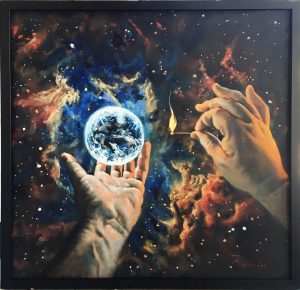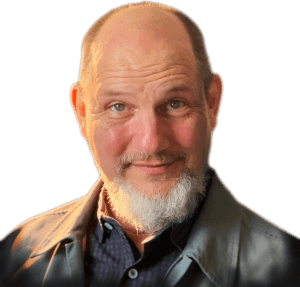 Our family rented the movie, Beauty and the Beast, last night. Cate and I find it very moving, in all its incarnations. I’ve never fully understood why this particular story has such power for me. Here’s one attempt at an answer.
Our family rented the movie, Beauty and the Beast, last night. Cate and I find it very moving, in all its incarnations. I’ve never fully understood why this particular story has such power for me. Here’s one attempt at an answer.
The beauty represents our longing for unconditional love, to be understood and loved for who we really are. But the beast is a metaphor for dissociation, the psychological term for separation from oneself. It is a curse. But it is also a blessing, a way for the mind to protect itself from trauma. As I discussed in my recent BLOG “My Proof of God,” the “out of body” episode I experienced during my childhood sexual abuse (CSA) was no arbitrary occurrence. I believe God was not only protecting me from the perpetrator, but also from myself. On the deepest level, I now understand my egocentric self, like the beast, needed that ultimate melange of how ugly we can be as humans, how deep our sin runs in us. Make no mistake, I am not blaming myself in any way or attempting to justify the actions of the evil man who perpetrated this act upon a child.
It was truly more than I could bear alone. After that experience I was no longer able to see or accept myself for who I was. It interfered with my identity as a child of God. For many years after, emotionally, I was stuck as that 14-year-old boy. Psychologists call this “arrested development.” When I looked in the mirror all I could see was an aging, ugly man, defiled and corrupted by this turn of fate, much like our beast.
Psychologists teach us to blame the abuser, never ourselves. Christian ministers tell us we must learn to forgive. But I’ve come to believe that with God there are no accidents. Is it possible this terrible thing happened for a reason? What could that horrific experience possibly teach me? What was the deep, hidden lesson behind the unfortunate fact of my abuse?
Truth be told, the perpetrator’s grooming, which led up to my abuse, fed right into the lies I was telling myself. For a number of perfectly good reasons, which I won’t go into here, I had convinced myself that I was somehow chosen, that I was entitled to more than others. And I was only 14. The perpetrator intuitively recognized this as my vulnerability and skillfully used it to control me.
Not to blame myself, but I had a distinct sense that I’d been designated to receive more than I deserved, though this definitely wasn’t what I’d had in mind. But I think God knew that in my heart of hearts I felt entitled not just to more advantages, more talent, better fortunes than others. But somehow I felt I deserved more good fortune than would make me the man God wanted me to become. I was well on my way to becoming the arrogant, isolated, angry beast from that powerful story.
Of course, I only know this in hindsight. But I have a hunch God knew I was going to be a tough nut to crack from the very start. Why do I presume to know God’s will in this? Because I still struggle with these thoughts today.  Of course, I have since learned that when we attempt to elevate ourselves above the rest of humanity, to a superior place among our fellow men, when we aspire to become the idol of our own desire and ambition, to rise above the fray, we are destined for a fall. Sometimes the fall is hard, though never harder than God knows we can handle. Sometimes the fall happens when we are young. Sometimes it doesn’t happen until the moment of our death. And some people never awaken to their hubris. They somehow are able to enroll others in the delusion of their own entitlement, managing to obtain fame, fortune and power in spite, or even because of their delusions of grandeur. Some delusionals inadvertently bring great joy and insight to the world through their successes and/or failures. Some even manage to become President of the United States. But more often than not, these individuals leave a lot of misery in their wake.
Of course, I have since learned that when we attempt to elevate ourselves above the rest of humanity, to a superior place among our fellow men, when we aspire to become the idol of our own desire and ambition, to rise above the fray, we are destined for a fall. Sometimes the fall is hard, though never harder than God knows we can handle. Sometimes the fall happens when we are young. Sometimes it doesn’t happen until the moment of our death. And some people never awaken to their hubris. They somehow are able to enroll others in the delusion of their own entitlement, managing to obtain fame, fortune and power in spite, or even because of their delusions of grandeur. Some delusionals inadvertently bring great joy and insight to the world through their successes and/or failures. Some even manage to become President of the United States. But more often than not, these individuals leave a lot of misery in their wake.
Of course, not all who rise to the pinnacle of success are the products of delusional thinking. I’m talking here about the people who endure in our memory, as well as people whose names we will never know, who are beloved, because they recognize their place within humanity. They realize they are part of a greater whole. They don’t take themselves too seriously or put others down in order to elevate themselves. They play their part and seem to realize, without having to be told, and without the need for acknowledgement from others, that they have received their advantages for the soul purpose of making the world better. They take on that responsibility with the ease and joy that comes with deep gratitude.
How are some so easily a part of this latter group, while others struggle their whole lives with their egos? Likely, those who have evolved into this enlightened state of being have done so as a result of their own personal struggles. I don’t think this enlightened way of being is the result of talent or hard work. Nor even of good deeds or kind words.
Some seem to be born humble, while others are destined to learn humility the hard way, over and over again throughout their lives. And still some never learn it. I think all three types of people serve a purpose in God’s grand scheme. God is not interested in our talent and knowledge, our fame and fortune, our power and influence or even our words and deeds. He is interested in our understanding of the journey, in our ways of being, who we are along the way. He is interested in how and why we do unto others. He cares about our humanity, our humility, moment by moment. The God of the Universe is most alive for me in my relationship with the present, which is the only thing we have any hope of influencing.
In short, God is concerned with our soul, our soul in Heaven and on Earth. It is the hope, the promise and the thrill of love, in all its many resplendent forms, that connects us to Him and others. Love is the central creative force in the universe and it is what gives our lives its deepest meaning.


 Would you like to get inspiration in your inbox, rather than ads for more stuff? Welcome to ManiscalcoGallery.com
Would you like to get inspiration in your inbox, rather than ads for more stuff? Welcome to ManiscalcoGallery.com